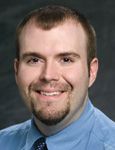- Acne
- Actinic Keratosis
- Aesthetics
- Alopecia
- Atopic Dermatitis
- Buy-and-Bill
- COVID-19
- Case-Based Roundtable
- Chronic Hand Eczema
- Chronic Spontaneous Urticaria
- Drug Watch
- Eczema
- General Dermatology
- Hidradenitis Suppurativa
- Melasma
- NP and PA
- Pediatric Dermatology
- Pigmentary Disorders
- Practice Management
- Precision Medicine and Biologics
- Prurigo Nodularis
- Psoriasis
- Psoriatic Arthritis
- Rare Disease
- Rosacea
- Skin Cancer
- Vitiligo
- Wound Care
Article
Katrina's aftermath: One doctor's despair
New Orleans ? When Hurricane Katrina ravaged the city on Aug. 29, the category four storm devastated many local dermatologists' practices, perhaps none more so than that of Lisa Osberg-Wilson, M.D. Wracked by financial uncertainty in the storm's wake, the 45-year-old mother of three took her life on Friday, Nov. 4, according to the Times-Picayune.
New Orleans - When Hurricane Katrina ravaged the city on Aug. 29, the category four storm devastated many local dermatologists' practices, perhaps none more so than that of Lisa Osberg-Wilson, M.D. Wracked by financial uncertainty in the storm's wake, the 45-year-old mother of three took her life on Friday, Nov. 4, according to the Times-Picayune.

"Her house and practice weren't all that damaged. It might have been better had they been wiped out," he says. Had that happened, he explains, "She could have moved on" rather than suffering anxiety over deciding whether or not to shut it down.
In fact, an Associated Press article says her practice was in the process of constructing a new office building at the time of her death.
"When she studied," Mr. Osberg adds, "she studied things inside and out."
For example, he says that while Dr. Osberg-Wilson was a resident at the University of Pittsburgh, where he was struggling with a metallurgical elective as part of his industrial engineering major, she sat down one night and "basically taught me the course," even though it had been at least five years since she had taken it as part of her undergraduate major.
According to the Associated Press article, Dr. Osberg-Wilson also suffered from post-traumatic stress disorder (PTSD), with which she had been diagnosed a week before her death.
With mental health problems such as PTSD, depression and anxiety, "There may be individuals who have certain predisposing factors (present) already. And it may just be that the hurricane and the experiences following it are enough to be that extra stressor that will bring that problem out," Thompson E. Davis III, Ph.D., says. He is assistant professor of clinical psychology at Louisiana State University and author of a study showing that undergraduate students displaced by Katrina showed significantly more symptoms of depression than their non-displaced counterparts.
Dr. Davis says that although his study didn't specifically address PTSD, this condition afflicts about 20 percent to 25 percent of people exposed to trauma. Classic PTSD can develop after an individual has experienced a real or potential threat that triggered feelings of helplessness or hopelessness, Dr. Davis says. Other hallmarks include symptoms of "re-experiencing," such as nightmares or flashbacks, as well as avoidance of cues or conversations that remind the victim of the experience.
As for suicide, Dr. Davis says it's very difficult for clinicians to predict which patients will cross that line. However, he says, "What we have learned is that usually, individuals who complete suicide have associated mental health issues. Eighty to 85 percent of those individuals have a history of either depression, alcohol and drug abuse or schizophrenia."
In assessing such patients, Dr. Davis says, "We want to see if the person is having suicidal thoughts, and reporting them; if there's a history of that kind of behavior or emotion; if they have developed a plan; and if there have been any changes in their behavior or functioning."
Mr. Osberg adds, "Any time there's a natural disaster, it puts unbelievable stress on people. Domestic violence, suicides - they all seem to spike" after such events. Therefore, he says, "There needs to be more of a response. It would be helpful to have more mental health (resources)" at such times.
For his sister, he says, "It seems as though the help wasn't there."
Newsletter
Like what you’re reading? Subscribe to Dermatology Times for weekly updates on therapies, innovations, and real-world practice tips.











